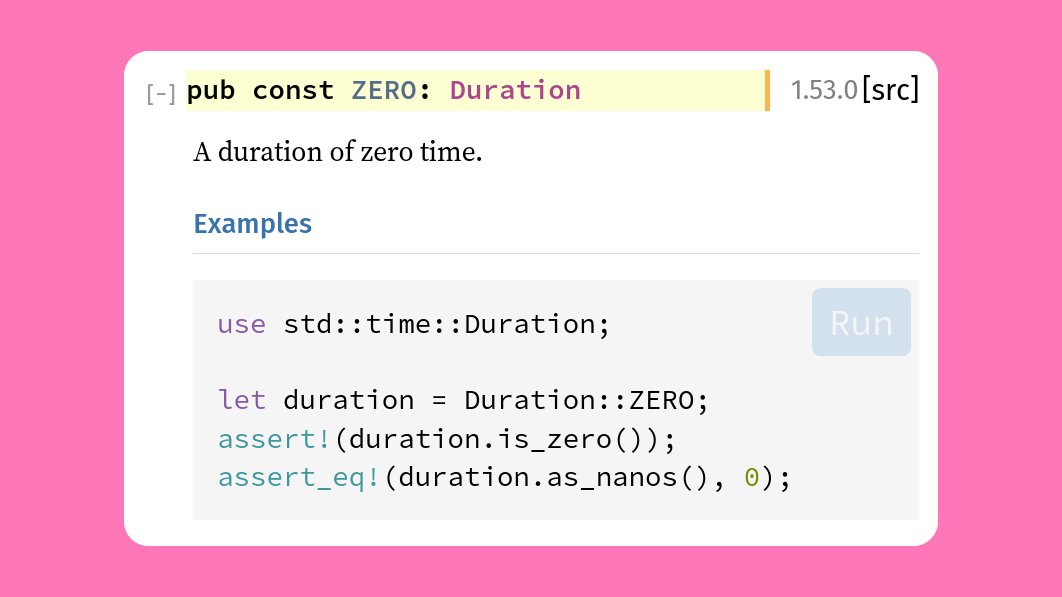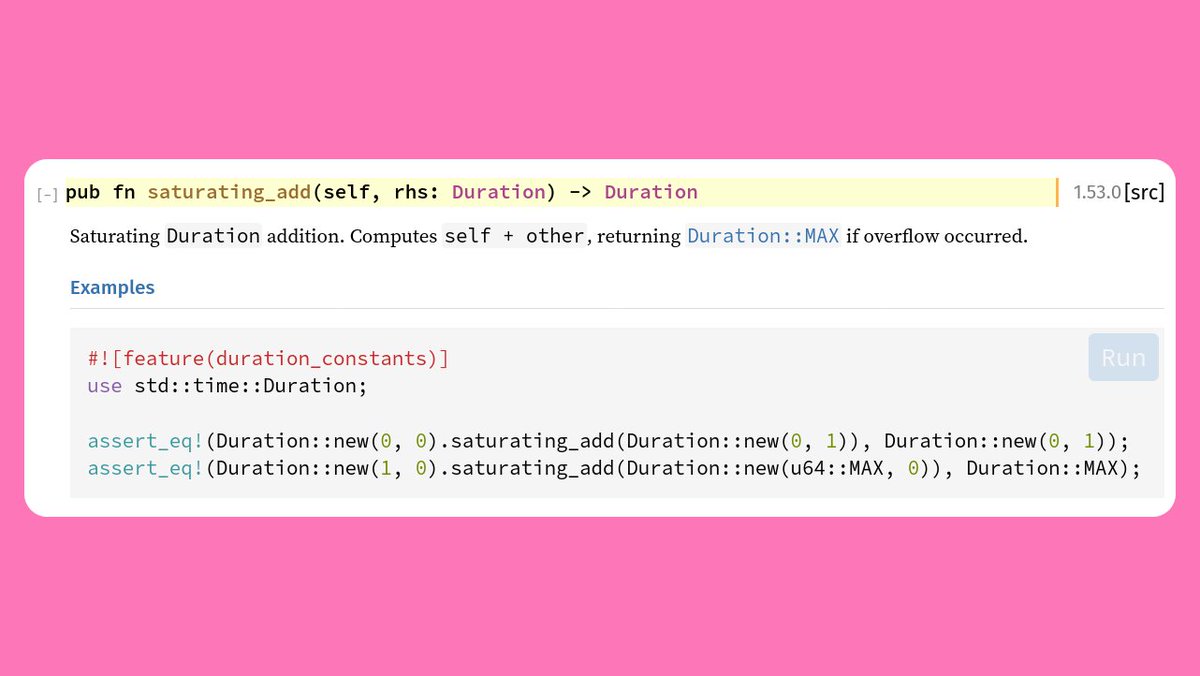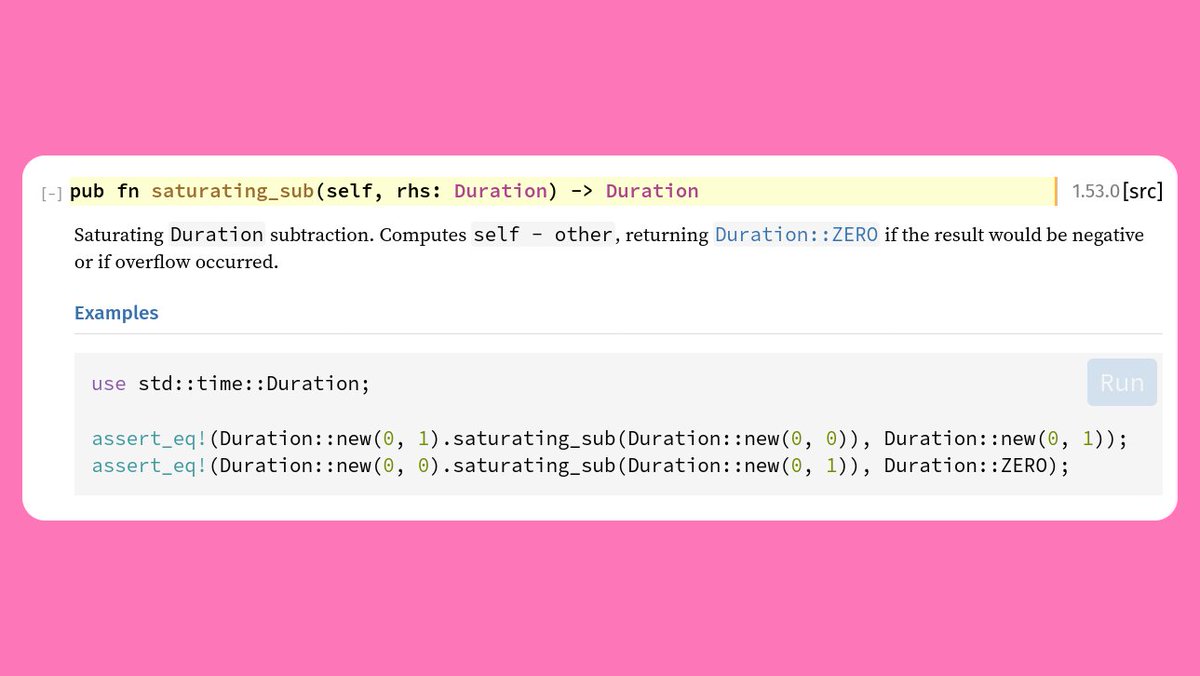
🦀✨ @rustlang 1.57.0 was released just moments ago!
blog.rust-lang.org/2021/12/02/Rus…
As usual, a thread to highlight some of the new features:
1/11
blog.rust-lang.org/2021/12/02/Rus…
As usual, a thread to highlight some of the new features:
1/11
1. panic!() and assert!() can now be used in const fns.
Any formatting other than panic!("..") and panic!("{}", some_str) is not accepted though, because formatting is not const (yet!).
2/11
![error[E0080]: evaluation of constant value failed --> src/m](/images/1px.png)
Any formatting other than panic!("..") and panic!("{}", some_str) is not accepted though, because formatting is not const (yet!).
2/11

![error[E0080]: evaluation of constant value failed --> src/m](https://pbs.twimg.com/media/FFnVNrCXMAAVWPD.jpg)
2. Many functions in the standard library have been marked as #[must_use], to warn you when just calling the function without using its result is most likely a mistake.
(See the full list here: github.com/rust-lang/rust…)
3/11

(See the full list here: github.com/rust-lang/rust…)
3/11


3. Iterator::map_while.
Basically a combination of map and take_while: Your closure is used to map each item, but can return None when it's done.
4/11![let a = [1, 2, 3, 4, 0, 5, 6]; let v: Vec<i32> = a .int](/images/1px.png)
Basically a combination of map and take_while: Your closure is used to map each item, but can return None when it's done.
4/11
![let a = [1, 2, 3, 4, 0, 5, 6]; let v: Vec<i32> = a .int](https://pbs.twimg.com/media/FFnYdRuXMAAD2pL.jpg)
4. Custom Cargo profiles!
Next to the standard Cargo profiles such as `release`, you can now define your own profiles with custom settings:
5/11![# Cargo.toml ... [profile.release-with-checks] inherits =](/images/1px.png)

Next to the standard Cargo profiles such as `release`, you can now define your own profiles with custom settings:
5/11
![# Cargo.toml ... [profile.release-with-checks] inherits =](https://pbs.twimg.com/media/FFnZ5bjWYAAspwu.png)

5. A dot or question mark after a braced macro invocation is no longer an error:
m! { .. }.method(); // ok!
m! { .. }?; // ok!
See
6/11
m! { .. }.method(); // ok!
m! { .. }?; // ok!
See
https://twitter.com/m_ou_se/status/1440612953783373830
6/11
6. Fallible allocation.
Vec, String, VecDeque, HashMap and HashSet now have a .try_reserve() method. This method is similar to .reserve(), except it doesn't panic/abort when it was unable to allocate memory.
7/11
Vec, String, VecDeque, HashMap and HashSet now have a .try_reserve() method. This method is similar to .reserve(), except it doesn't panic/abort when it was unable to allocate memory.
7/11

7. Vec::leak no longer reallocates.
Vec::leak used to shrink the capacity before leaking the data, which might involve a reallocation. The behaviour is now changed to always leak the current allocation, without shrinking/reallocating first.
8/11
Vec::leak used to shrink the capacity before leaking the data, which might involve a reallocation. The behaviour is now changed to always leak the current allocation, without shrinking/reallocating first.
8/11

8. std::hint::unreachable_unchecked is now const.
In *const* context, it'll result in a compiler error when reached, not in undefined behaviour like it would at runtime.
9/11
In *const* context, it'll result in a compiler error when reached, not in undefined behaviour like it would at runtime.
9/11

9. There's a few new tier 3 targets:
- armv6k-nintendo-3ds
- armv7-unknown-linux-uclibceabihf
- m68k-unknown-linux-gnu
- aarch64-kmc-solid_asp3
- armv7a-kmc-solid_asp3-eabi
- armv7a-kmc-solid_asp3-eabihf
See doc.rust-lang.org/nightly/rustc/…
10/11
- armv6k-nintendo-3ds
- armv7-unknown-linux-uclibceabihf
- m68k-unknown-linux-gnu
- aarch64-kmc-solid_asp3
- armv7a-kmc-solid_asp3-eabi
- armv7a-kmc-solid_asp3-eabihf
See doc.rust-lang.org/nightly/rustc/…
10/11
And that's all I wanted to highlight in this thread!
For a more complete list of changes in Rust 1.57, check the release notes:
Rust: github.com/rust-lang/rust…
Cargo: github.com/rust-lang/carg…
Clippy: github.com/rust-lang/rust…
Enjoy!
11/11
For a more complete list of changes in Rust 1.57, check the release notes:
Rust: github.com/rust-lang/rust…
Cargo: github.com/rust-lang/carg…
Clippy: github.com/rust-lang/rust…
Enjoy!
11/11
• • •
Missing some Tweet in this thread? You can try to
force a refresh


![for (i, x) in [1, 2, 3].into_iter().enumerate() { //](https://pbs.twimg.com/media/FCPgybTWEAMnupW.jpg)



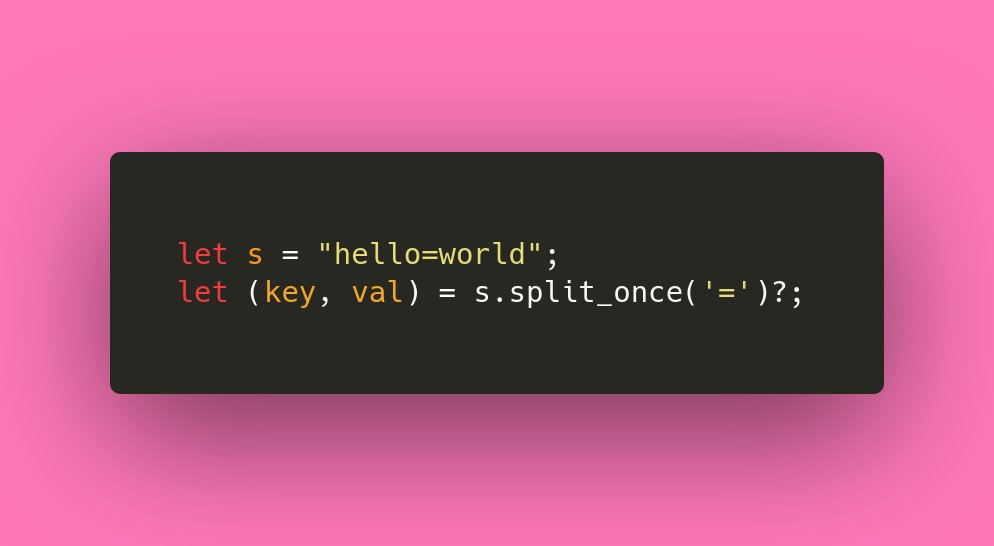
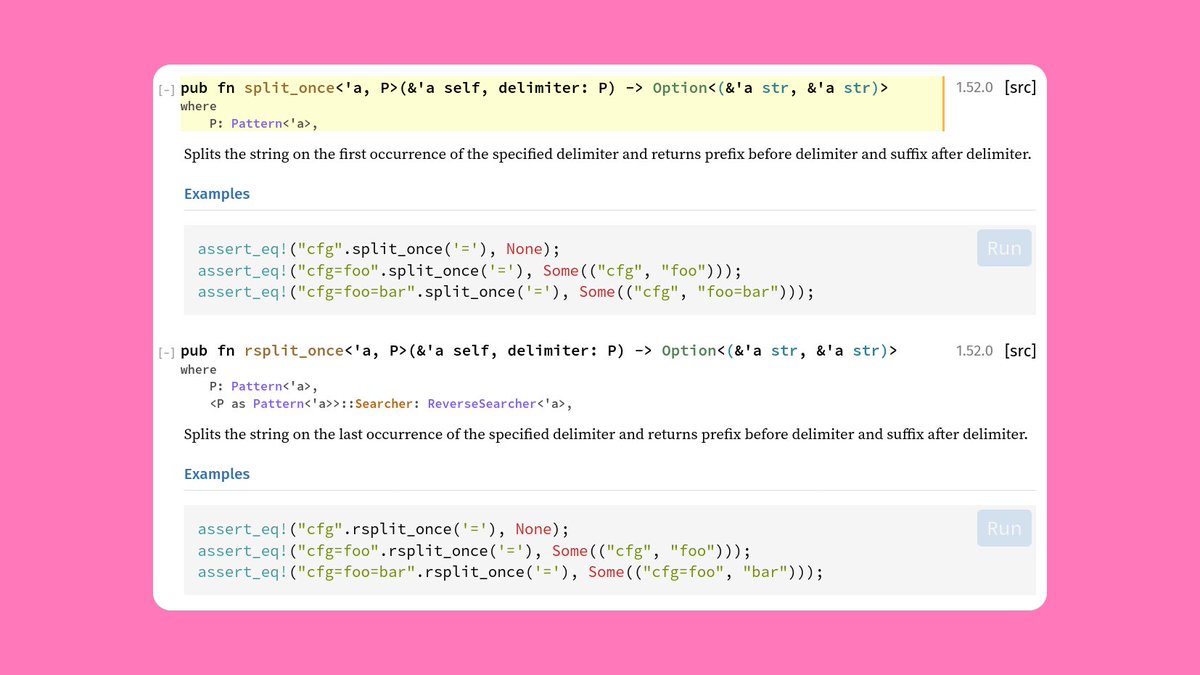
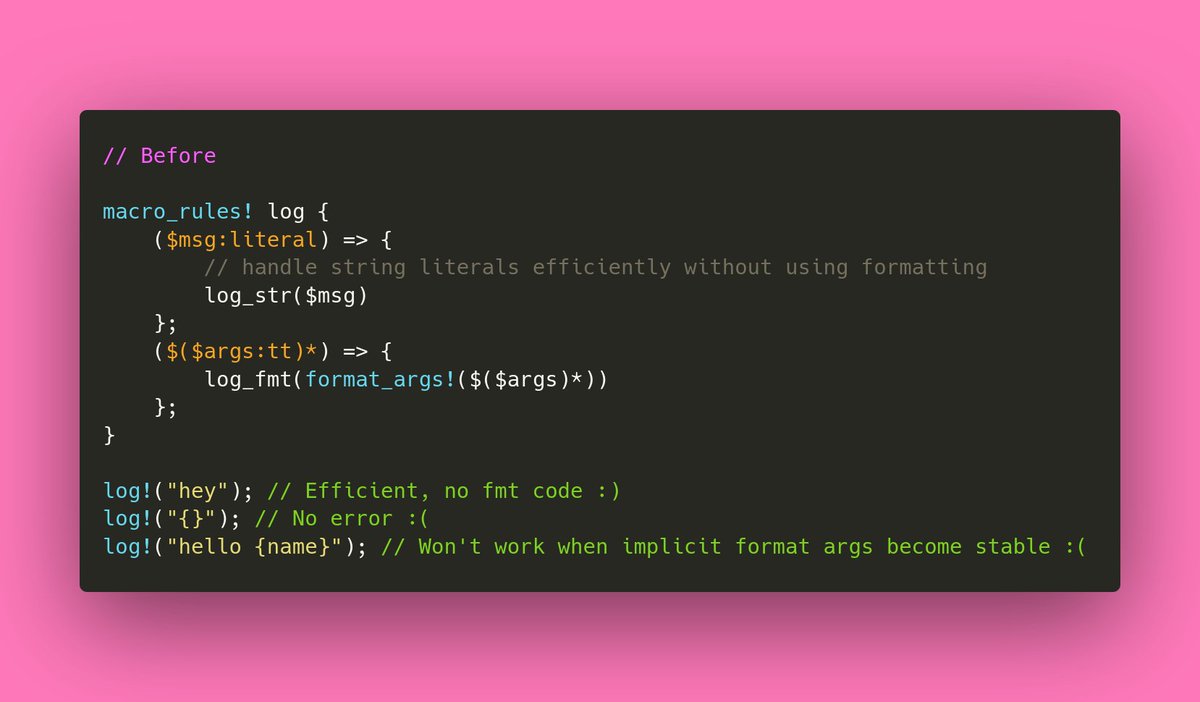
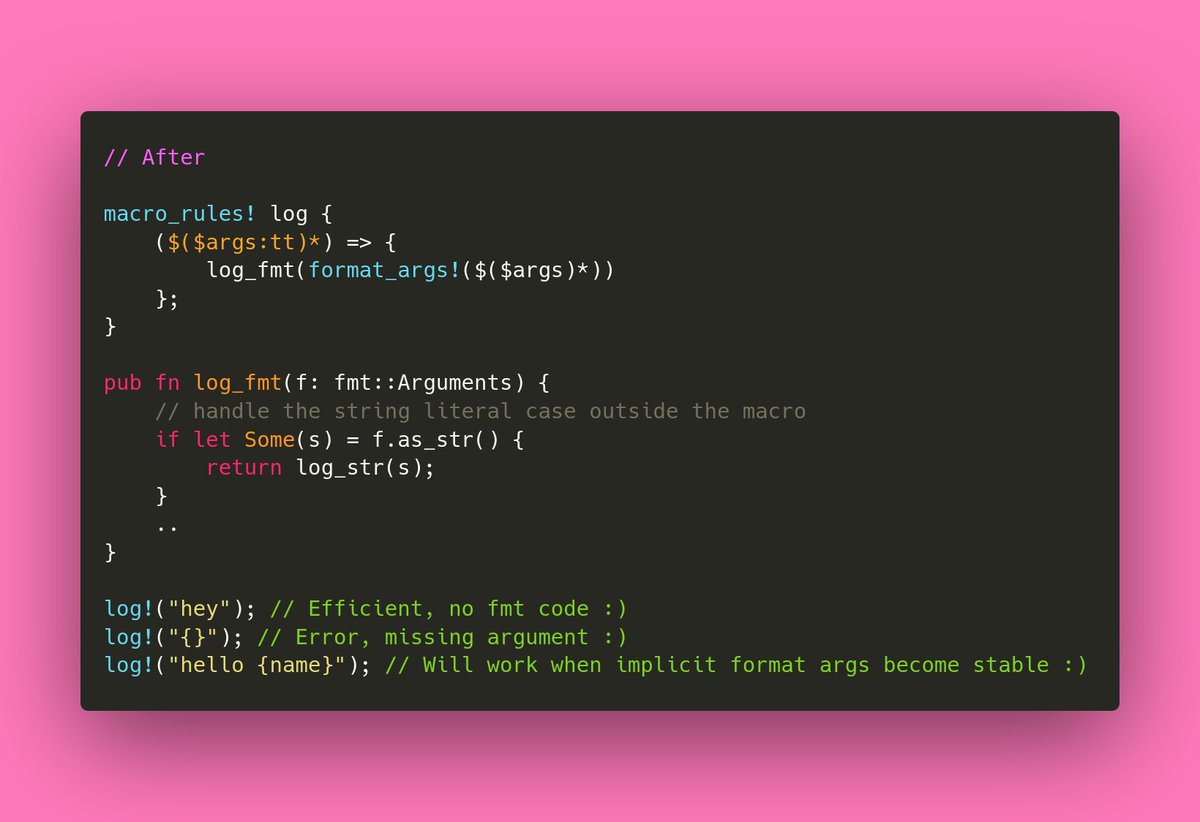
![error[E0277]: `[{integer}; 3]` is not an iterator borrow th](https://pbs.twimg.com/media/EzvpdLjXEAEcNFn.jpg)
![for e in [1, 2, 3] { // Works in 1.53! println!("{}](https://pbs.twimg.com/media/EzvpbjdWUAUb0QG.jpg)
![for e in [1, 2, 3].into_iter() { // Surprise: `e` is a r](https://pbs.twimg.com/media/EzviwSxXoAM8r1J.jpg)
![warning: this method call currently resolves to `<&[T; N] as](https://pbs.twimg.com/media/EzvkI3PXIAMWHQd.jpg)
